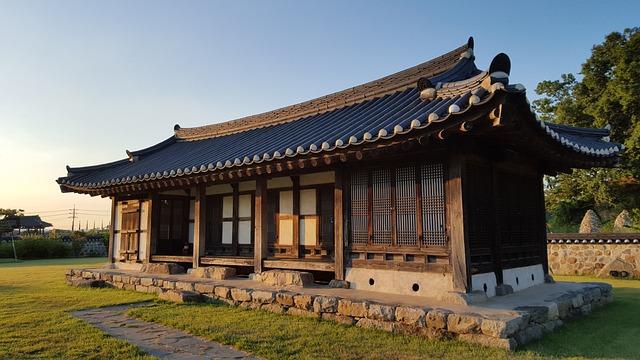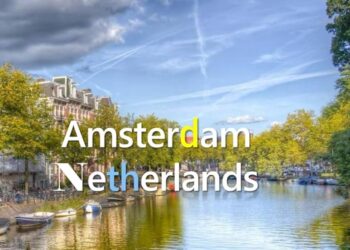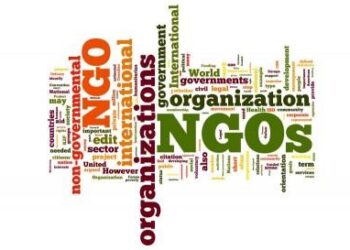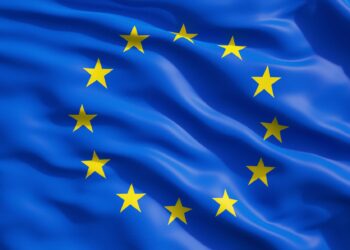In the wake of the Soviet Union’s dissolution, countries across Eastern Europe and the Caucasus faced the monumental task of redefining their national identities and political frameworks. Among these nations,Georgia stands out as a compelling case study,grappling with the legacies of its Soviet past while striving to assert a distinct,modern identity. This article explores Georgia’s efforts to navigate and potentially overcome the pervasive de-Sovietization narrative, particularly as articulated through recent research and discussions at the Wilson Center. we will delve into the sociopolitical dynamics that shape Georgia’s journey, highlighting the challenges and opportunities that lie ahead in reshaping its historical narrative and fostering a resilient national character in the contemporary world. As Georgia seeks to reconcile its complex history with aspirations for a democratic future, understanding these prospects is crucial for both policymakers and scholars alike.
Understanding the De-Sovietization Challenge in Georgia

The process of de-Sovietization in Georgia presents a multifaceted challenge that intertwines historical, cultural, and political elements. As the country seeks to distance itself from its Soviet past, issues surrounding national identity and collective memory remain pivotal. Many Georgians grapple with the duality of embracing a new national narrative while recognizing the complexities that Soviet history has imprinted on their society. This challenge manifests in various ways, including:
- The Evolution of National Identity: As citizens strive to redefine what it means to be Georgian, one of the major hurdles is differentiating between Soviet-era influence and customary Georgian values.
- Political Polarization: The political landscape often reflects divergent views on historical interpretation, with some factions advocating for a stronger association with Western ideals, while others cling to remnants of Soviet nostalgia.
- Memorialization and Remembrance: Efforts to reshape public spaces, such as the removal of Soviet monuments, have sparked debates about the appropriateness of forgetting history versus the necessity of confronting it.
In addressing these issues, various stakeholders play vital roles in fostering a comprehensive strategy for cultural renewal. The state, civil society, and educational institutions must collaborate to forge a cohesive narrative that resonates across differing perspectives. Key strategies may include:
| Strategy | Description |
|---|---|
| Educational Reform | Integrating a diverse range of historical perspectives into school curriculums. |
| Public Dialog Initiatives | Encouraging open discussions about the implications of Soviet history. |
| Community Engagement | Involving locals in decision-making on cultural preservation and conversion. |
Cultural Heritage and the Narrative of Soviet Influence

The legacy of Soviet rule continues to cast a long shadow over Georgia’s cultural heritage, resulting in a complex interplay between memory and identity.This ongoing struggle is characterized by a dual narrative: on one hand, there is a deep-seated pride in the rich cultural tapestry that predates Soviet influence, while on the other, there exists an enduring attachment to elements that were inadvertently woven into the national identity during that era. To navigate this intricate landscape, it is indeed crucial for Georgians to engage in a critical reflection of their past, recognizing both the moments of resilience and the impositions of Soviet ideology that sought to reshape their cultural narrative.
Key aspects of this cultural re-evaluation involve:
- Architectural Heritage: Identifying and preserving structures that symbolize pre-Soviet glory.
- Arts and literature: Reviving traditional forms that were suppressed or altered under Soviet regimes.
- Language and Dialect: Promoting the use of native languages in public life to reclaim cultural pride.
The challenge lies in harmonizing these elements with modern expressions of identity, fostering an inclusive space that honors the past while also embracing the future. As Georgia charts its path away from the de-Sovietization narrative, the conscious reclamation of cultural heritage serves as both a reflection and a blueprint for a society looking to redefine itself in a post-Soviet landscape.
| Key Cultural Aspects | Soviet Influence | Current Efforts |
|---|---|---|
| Architecture | Standardized buildings, loss of historical styles | restoration of historical sites |
| Arts | Propaganda art, suppression of local artists | Support for local artists and exhibits |
| Language | Promotion of Russian | Reinforcement of Georgian language usage |
Political Strategies for Reinforcing National Identity

To effectively address the challenge of de-Sovietization narrative in Georgia, political leaders must adopt strategic frameworks that resonate with the populace while strengthening national unity.One approach involves promoting cultural heritage through educational initiatives that highlight pre-Soviet history and native traditions. By fostering a sense of pride in Georgia’s rich past, leaders can cultivate a renewed national identity that embraces both modern values and historical authenticity. this strategy could include:
- Public History Programs: Initiatives that celebrate significant milestones in Georgia’s history, engaging citizens in meaningful discourse.
- Cultural Festivals: Annual events showcasing local music, art, and cuisine to solidify communal ties.
- Revised Educational Curricula: Incorporating more content on Georgia’s unique historical context and achievements before the Soviet era.
Moreover, leveraging media platforms to disseminate narratives that counter negative perceptions of the national identity can significantly bolster unity. Establishing a national dialogue that includes diverse perspectives encourages a more inclusive approach to patriotism. By integrating digital platforms and traditional media to spread messages of resilience and hope, policymakers can create a robust counter-narrative that promotes social cohesion. Key components of this media strategy include:
| Strategy Component | Description |
|---|---|
| Storytelling Campaigns | Feature personal accounts of historical importance, fostering emotional connections. |
| Interactive Media | Use social media polls and forums for public engagement and feedback. |
| Influencer collaborations | Partner with respected figures to amplify messages that reinforce a positive national identity. |
Economic Measures to Strengthen Independence and Self-Sufficiency

As Georgia strives to carve out a clear path toward independence and self-sufficiency, several economic measures can be implemented to achieve these goals. A multi-faceted approach can bolster the local economy, enhance productivity, and reduce dependency on external influences. Key strategies include:
- Investment in local industries: By prioritizing support for small and medium enterprises (SMEs), the government can stimulate job creation and drive innovation.
- Promotion of agricultural development: Encouraging enduring farming practices can not only secure food supply chains but also enhance export potential.
- Education and vocational training: Investing in human capital through upskilling initiatives can prepare the workforce for modern economic demands, fostering innovation and adaptability.
Furthermore, diversifying energy sources is essential for independence in this sector. Transitioning towards renewables can reduce reliance on external energy supplies while creating new jobs in green technology. A clear policy framework that incentivizes investment in renewables can be pivotal. The table below highlights potential growth areas in the renewable energy sector:
| Renewable Energy Source | Potential Growth (%) | Key Benefits |
|---|---|---|
| Solar | 30% | Cost-effective energy, job creation |
| Wind | 20% | Reducing emissions, long-term sustainability |
| Hydropower | 15% | Reliable energy generation, flood control |
International Partnerships as a Pathway to Resilience

In the face of historical narratives that have long shaped its identity, Georgia’s strategic engagement in international partnerships represents a vital avenue for bolstering resilience and advancing its socio-political landscape. These collaborations not only enhance economic stability but also serve as a platform for promoting democratic values and human rights.By leveraging connections with organizations such as the EU and NATO, along with bilateral alliances, Georgia can effectively counterbalance the significant influence of post-Soviet ideologies. Such initiatives foster a shared commitment to reform and modernization, reflecting a consensus around both regional stability and global integration.
the impact of these international partnerships can be further illustrated through specific avenues of cooperation. georgia’s participation in multilateral efforts encompasses:
- Economic Development: Collaborations that aim to enhance trade relations and investment opportunities.
- Security Alliances: Joint military exercises and intelligence sharing to reinforce regional peace and security.
- Cultural Exchange: Programs focusing on educational cooperation that promote awareness of Georgia’s rich heritage.
- Environmental Initiatives: Partnerships addressing climate change and sustainable development goals.
| Partnership Type | Objectives | Expected Outcomes |
|---|---|---|
| Trade Agreements | Boost economic growth | Increased export volume |
| Military Cooperation | Enhance regional security | Strengthened defense capabilities |
| Cultural Programs | Promote mutual understanding | Greater cultural exchange |
| Environmental projects | Address climate challenges | Improved ecological sustainability |
Through these collaborative efforts, Georgia not only positions itself as a proactive player on the international stage but also actively redefines its narrative away from de-sovietization. By cultivating alliances that uphold principles of democracy and collaborative governance, the nation is crafting a new identity focused on resilience, adaptability, and harmony within the broader global community.
Recommendations for a Comprehensive National Strategy

To effectively navigate the complexities of the de-Sovietization narrative, Georgia must adopt a comprehensive national strategy that encompasses multiple facets of society. This strategy should prioritize the strengthening of national identity by promoting cultural programs that celebrate Georgia’s unique heritage and history. By fostering a sense of unity among its citizens, the country can successfully counteract lingering Soviet influences. Key components of this approach include:
- Investing in education: Revamping curriculums to emphasize Georgia’s historical narratives and diverse cultural influences.
- Supporting the arts: Providing grants and platforms for local artists to express their interpretation of national identity through various mediums.
- Community engagement: Encouraging public discussions and programs that invite citizens to share their perspectives on national identity.
In addition to cultural initiatives, the government should strengthen democratic institutions and civil society to foster political stability and openness. A robust civil society not only provides a counterbalance to governmental power but also serves as a platform for civic engagement essential for addressing the political ramifications of the de-Sovietization discourse. Essential strategies may include:
| Strategy | Description |
|---|---|
| Legal Reforms | Implementing policies that enhance the rule of law and protect civil liberties. |
| Transparency Initiatives | introducing measures that promote open governance and public accountability. |
| Grassroots Mobilization | Supporting local organizations to engage in policy-making and advocacy efforts. |
Concluding Remarks
Georgia’s journey towards redefining its national identity and overcoming the de-Sovietization narrative remains a complex and multifaceted endeavor. The insights provided by the Wilson Center shed light on the challenges and opportunities facing the nation as it seeks to forge a distinct political and cultural identity separate from its Soviet past. With a resilient civil society, a commitment to democratic values, and an increasing awareness of its European aspirations, Georgia stands at a crossroads. The path forward will require navigating historical grievances, regional dynamics, and contemporary geopolitical tensions. As Georgia continues to grapple with these issues,the effectiveness of its strategies in embracing a future free from the shadows of Soviet influence will be pivotal not only for its own national narrative but also for its role in the broader context of post-Soviet states.The world will be watching closely as Georgia evolves, laying the groundwork for a robust and independent identity that honors its history while embracing the prospects of a new era.











